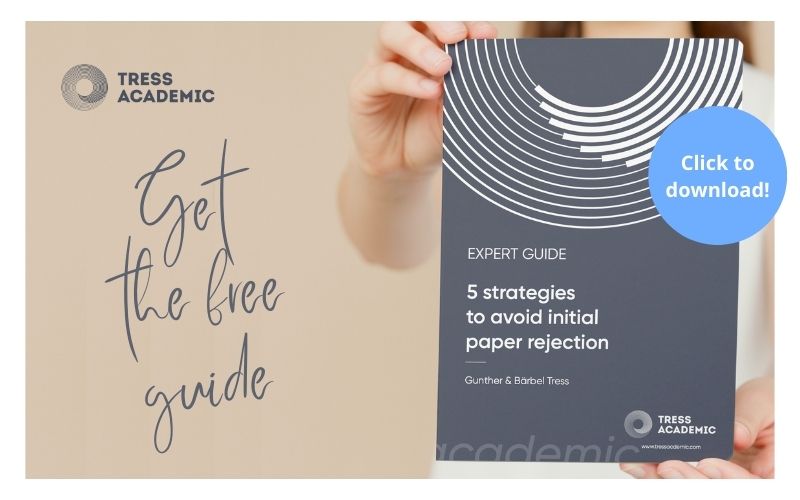Have you considered looking for a writing buddy for your next paper? Are you wondering about the potential benefit of having someone to talk to when crafting your manuscript? Here, we provide four reasons why it can be beneficial to apply the writing-buddy system.
Everybody says writing is a lonely activity, and that you’ll have to do it alone. It’s true, typing on your laptop or drafting the sentences with pen and paper is generally done alone. But writing a paper is more than just typing or writing words, and for all the other steps, a writing buddy can be very helpful. We want you to consider looking for such a partner for your next paper.
What is a writing buddy?
A writing buddy is someone you can share the burden and pleasure of writing a journal paper with. It can be a very good friend, but it doesn’t have to be. But a writing buddy is not a co-author of your paper. Co-authorship is often a practical arrangement defined by the set-up of a project. A co-author doesn’t have to be someone you consider a writing buddy, although some co-authors fulfill some of the tasks of a writing buddy.
Rather, your writing buddy should be a person that you trust and get along with very well—someone you find it easy to communicate with and whose opinion you value and respect. Ideally, a writing buddy is in the same situation as you, also writing a journal paper, and going through this process—more or less—at the same time as you. Your writing buddy can be from the same or a related research field, but it can also be advantageous if your buddy has a different background so they can provide a different perspective on your paper and the writing process.
Your office mate, a fellow PhD student in the same project, a fellow postdoc at your institute, or a researcher from another institute; any of these can be your writing buddy. It’s typically a two-person system that allows joining forces to get the papers done. You work together, but each on your separate paper. It’s a professional partnership that can last longer than this one paper. The main purpose of the buddy system is to give each other support—often it’s the type of support that you would otherwise never get.

What can a writing buddy do for you?
Let’s have a look at the four reasons why it might be worth it for you to look for a writing buddy. What will you gain from it? What can you expect from a good writing buddy, and what type of support should you be willing to provide?
#1: You will be accountable!
Accountability is the key driver of the writing-buddy system. You agree on tasks to finish before the next meeting, and then work on them individually to present at the next meeting. You have no excuse for why you cannot do it or why you don’t want to do it. For example, your writing buddy can send you a draft of a manuscript section and ask you to comment on it, and you do the same. But it only works if both do it. And of course, you don’t want to disappoint your buddy and know you can only ask for input when you also deliver your part.
To achieve this accountability level, it is necessary that you both set very clear expectations for each other for what you’re going to deliver and when. Ideally, this is clearly defined in a short writing-buddy agreement. This is like a small contract that clarifies the responsibilities in your professional partnership. You can download a template of such a writing-buddy agreement from us here.
#2: You will be committed and get a motivation boost!
The writing-buddy system works only if both of you are committed to progressing your papers. It is not like your buddy does the work and you can lean back and relax. No, you both have to fulfill your share of the agreement. But then—and this is the magic of the system—you both will make progress.
The progress you’ll experience over the weeks and eventually months that you work together is a great motivation boost. Gradually you’ll see that your paper is taking shape. It’s growing, getting better, and you’re making progress. This feels so good to experience, you won’t want this drive to stop.
The challenge will be—for both of you—to stick to your commitment and the agreement. We all know how busy an academic’s life can be. There are many unexpected demands suddenly placed on you, or you need to give more time to a task than expected.
Sometimes, your time plan and your commitment might be challenged by these external factors. Then it is even more important that you have a writing buddy with whom you can speak openly about these problems, and that you know your buddy will understand your situation. And a good writing buddy will recognise when you need special encouragement to move forward with the tasks on your paper.

#3: Your writing will improve!
The huge benefit of the writing-buddy system is not only that you get your paper written, but that the quality of your work improves. You can ask your buddy anything and can ask for feedback on everything. This type of honest feedback is—sometimes—hard to get among co-authors.
And the great thing is, the feedback that you will get from your buddy is expressed in a totally safe environment. And only the two of you have to know about it. You can still decide what to implement from the feedback you’ve got, and nobody else will know what you left out. In this case, it is a bit easier to consider a suggestion that you, on the first look, would have judged inappropriate, but on a second look appears very valuable. You’ll get great advice from your buddy, who is literally your first reader.
The feedback and advice you get can even include editorial and technical tips and suggestions on how to present data in a figure or how to format a table. That might be stuff you wouldn’t have come up with yourself but ultimately increases the quality and readability of your paper when you finally submit it to the journal.
When commenting and editing your buddy’s paper, you should make clear agreements on what should be looked at and in which form the feedback should come, e.g. as a free-text email or as an electronically annotated document.
#4: You’re not alone!
We know that writing their papers alone isn’t an issue for some researchers, but for some it is. Paper-writing has its ups and downs. There are moments when you question everything because you think your paper’s research aim is not novel, your method is flawed, and your results are nothing special. Have you ever had such feelings?
If yes, then it is great to have a writing buddy. You don’t have to deal with these feelings alone. You can rely on the support of your buddy and another pair of eyes to discover an easy way out of a problem that was a sheer insurmountable obstacle for you.
In research, you spend a lot of time on your own. You’re alone with your problems and your doubts. And this is particularly true for research writing. A writing buddy is there to support you when you need it and to guide you when you cannot see the light at the end of a tunnel.
It’s just good to know you’re not alone on this paper-writing journey. The buddy will be there for support in case of failures and problems, and will also be there to share the successes!

How to find a writing buddy?
Make a list of three people you know well enough to start a writing-buddy partnership with. They can be from your team, your institute, or you might have met them at a conference or online. Then inquire whether any of them is in the same situation as you, busy with writing a paper, and suggest the partnership. If you take the initiative, you will find a writing buddy, for sure.
You don’t have to live in the same place, as it can be done virtually. The in-person system, where you regularly physically meet, has the advantage of a nice social gathering, but don’t hesitate to go for the virtual exchange. Video conferencing can facilitate the kind of exchange that you need with a writing buddy very well. In fact, the virtual buddy-system is sometimes more effective, as you both concentrate on the meeting and get less distracted from the environment where you meet.
Conclusion
A writing buddy is not for everyone, we know, but for many it might break the monotony and isolation of the lonely paper-writing process. If you team-up with the right person, the relationship will go far beyond the one paper that you write. It can last almost a lifetime. We had such a relationship with a colleague and friend until he passed away a few years ago. We had co-authored papers, but we also acted as writing buddies’ for each other on the various papers and it was a very valuable experience that we cherish wholeheartedly!
We now recommend that all our students in our courses consider paper-writing with a writing-buddy as well. If you want to know more about our paper-writing programme, click here.

Relevant Resources
More Information
Do you want to successfully write and publish a journal paper? If so, please sign up to receive our free guides.
Photo by Annie Spratt on unsplash
© 2022 Tress Academic
